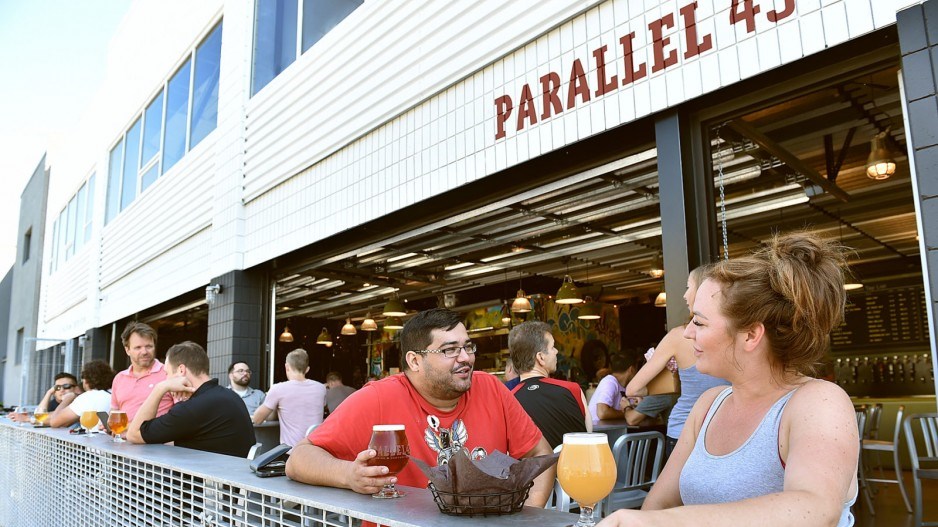Operators of Vancouver restaurants and pubs will be able to apply June 1 to the city to add temporary patios to their businesses as they look to recover revenues lost during the pandemic.
Those interested will have application and permit fees waived, expect approval within two days and be allowed to keep patios open until the end of October.
“Totally proactive, awesome and needed,” said Ian Tostenson, president and CEO of the B.C. Restaurant and Food Services Association, in an email after learning of city council’s unanimous decision Wednesday to expand patios. “The industry really appreciates this pivot.”
Asked what he believes the uptake will be from businesses, Tostenson said “every restaurant” will look to expand because the process created by the city “is so easy.”
The move by council is designed to help businesses reopen while adhering to physical distancing orders during the pandemic. Fees for patios can run up to $3,000 annually but have been waived to help businesses recover, council heard from staff Wednesday.
“I think it’s phenomenal, I think that this is what the industry is looking for and that days matter and this is about absolute survival of our industry,” said Coun. Sarah Kirby-Yung, who introduced a motion at council earlier this month to expedite the expansion of temporary patios.
Patios are expected to come in all sizes, with some taking over parking spots and portions of sidewalks. Operators serving liquor on patios will require railings around them, while other patios may consist of tables and chairs than can be moved at the end of the day.
“I used to sling beer myself in another life and I know that a lot of people who have lost their jobs have been low-wage women service providers, and I’m hoping we can get some of their jobs back,” Coun. Jean Swanson said. “So I’m good to go on this.”
Margaret Wittgens, acting deputy general manager of engineering, said the new patios cannot have structures on them or anything electrical. The intent is to enable quick implementation that does not involve significant design, or construction costs, Wittgens said.
“Our real goal is to move fast and be agile,” she said. “That’s going to require learning as we go, and working with businesses to adjust if things don’t work.”
Wittgens said the city is also working to expedite applications for breweries, private property and public spaces for take-out dining and other business uses.




